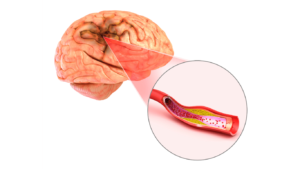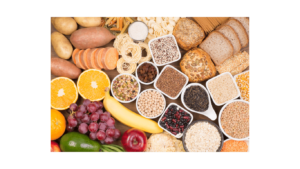In our modern world, many everyday items, from breakfast foods to condiments, are laden with hidden sugars. The detrimental health effects of excessive sugar consumption are well-documented, including obesity, type 2 diabetes, heart disease, cancer, and tooth decay. This article aims to provide comprehensive strategies for reducing added sugar intake.
Understanding Added Sugars
1. Reading Labels for Hidden Sugars
When aiming to lower your added sugar intake, the first step is to become familiar at reading product labels. Many seemingly innocent items, such as sauces and breakfast foods, can harbor more sugar than meets the eye.
2. The Devastating Impact of Excessive Sugar
The consequences of overindulging in added sugars are severe, contributing to various health issues. Research suggests that the average American consumes a staggering 55–92 grams of added sugar daily, well above the recommended limits.
Tackling Sugary Drinks
3. Unmasking Sugary Drinks
Sugary drinks, including sodas, sports drinks, and seemingly healthy options like smoothies, are major culprits in excessive sugar consumption. Cutting back on these beverages is crucial for weight loss and overall health improvement.
4. Healthier Beverage Alternatives
Opt for naturally low-sugar alternatives such as water, unsweetened sparkling water, herbal teas, black or green tea, and coffee to hydrate without the unwanted sugar content.
Dessert Alternatives for Sweet Satisfaction
5. Smart Dessert Choices
Traditional desserts are often loaded with sugar, leading to energy spikes and subsequent crashes. Instead, explore alternatives like fresh fruit, Greek yogurt with cinnamon or fruit, baked fruit with cream, and dark chocolate (70% cocoa or higher).
Unveiling Hidden Sugars in Sauces
6. Sauce Selection Strategies
Common condiments like ketchup and barbecue sauce can be sugar landmines. Opt for "no added sugar" varieties and consider flavorful alternatives such as herbs, spices, chili, mustard, vinegar, pesto, mayonnaise, or lemon/lime juice.
Debunking the Low-Fat Myth
7. Reevaluating Low-Fat Options
Low-fat alternatives might seem like a healthy choice, but they often pack more sugar and sometimes more calories than their full-fat counterparts. Make informed choices by reading ingredient lists and opting for full-fat options.
Embracing Whole Foods

8. The Power of Whole Foods
Choosing whole, unprocessed foods over ultra-processed options is pivotal in reducing added sugar intake. Whole fruits, legumes, whole grains, vegetables, and minimally processed meats provide nutritional benefits without the hidden sugars found in many processed foods.
Cautions with Canned Foods
9. Navigating Canned Goods
While canned foods can be convenient, they may hide added sugars. Opt for fruits and vegetables packed in water or labeled "no added sugar" to avoid unnecessary sugar intake.
Decoding "Healthy" Snacks
10. Seeing Through the "Health Halo"
Snacks marketed as "wholesome" or "natural" can be deceiving. Granola bars, protein bars, and dried fruit may contain as much sugar as chocolate bars. Opt for truly healthy, low-sugar snack options like nuts, seeds, no-sugar-added jerky, hard-boiled eggs, and fresh fruit.
Rethinking Breakfast Choices
11. Navigating the Breakfast Aisle
Some breakfast cereals and popular morning options can be sugar-laden. Choose low-sugar alternatives like oatmeal sweetened with fresh fruit, Greek yogurt with fruit and nuts, or an egg scramble with cheese and veggies.
Sugar Awareness and Label Interpretation
12. Unveiling Hidden Sugars on Labels
Awareness of food labels is crucial in managing sugar intake. Recognizing over 50 names for added sugar, including high fructose corn syrup, cane sugar, and maltose, empowers consumers to make informed choices.
Curbing Sugar Cravings
13. Protein-Packed Strategies
Protein-rich whole foods can play a crucial role in curbing sugar cravings. Opt for meat, fish, eggs, full-fat dairy products, avocados, and nuts to promote satiety and reduce overall sugar consumption.
Navigating Sweeteners
14. Navigating Natural Sweeteners
While artificial sweeteners may pose concerns, natural alternatives like stevia, erythritol, monk fruit, and allulose offer promising options with minimal calorie impact.
Managing the Home Environment
15. Strategies for Home Success
Creating a home environment devoid of high-sugar temptations can significantly aid in reducing sugar intake. Stocking up on healthy low-sugar snacks and incorporating distractions like puzzles can fortify your commitment.
Prioritizing Quality Sleep
16. Sleep's Impact on Sugar Choices
Acknowledging the relationship between sleep and dietary choices is crucial. Poor sleep habits may predispose individuals to opt for high-sugar, calorie-dense foods. Prioritizing quality sleep contributes to healthier food choices.
Conclusion
In conclusion, reducing added sugar intake goes beyond avoiding obvious sources. It involves a comprehensive approach, including label reading, smart beverage choices, alternative desserts, mindful sauce selection, debunking low-fat myths, embracing whole foods, and fostering a home environment conducive to low-sugar living. By implementing these strategies, individuals can take charge of their added sugar intake, promoting overall health and well-being.






